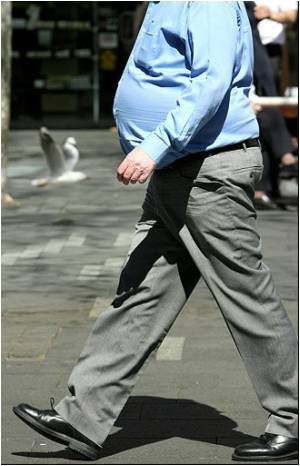Cardiorespiratory fitness reduced the risks of the potentially dangerous heartbeat to 84 percent in obese people which was even more than losing weight.

"This study adds to a growing body of evidence that aggressive risk factor management with increased physical activity should be an integral component of management of atrial fibrillation," said lead researcher Dr. Prashanthan Sanders, director of the Center for Heart Rhythm Disorders at the University of Adelaide in Australia.
According to the American Heart Association, more than 2.7 million Americans are affected by Atrial fibrillation, the most common abnormal heart rhythm. Obesity and inactivity are risk factors for atrial fibrillation, which can lead to stroke. The report was published in the Journal of the American College of Cardiology.
The study was conducted on 308 patients with atrial fibrillation who had a BMI of more than 27. They were categorized to one of three groups based on their level of fitness: low, adequate, or high fitness. The groups were followed for about four years to see how their level of fitness affected the recurrence of the abnormal heartbeat. Patients were also offered a doctor-led weight loss and exercise program.
They found that 84 percent in the high fitness group no longer had atrial fibrillation, compared with 76 percent in the adequate group and 17 percent in the low fitness group.
Sanders' team also found that for every increase in metabolic equivalent, a measure of the amount of oxygen used at rest, the risk of atrial fibrillation recurrence was reduced by 20 percent. Those with increases of two or more metabolic equivalents who also lost weight had dramatic declines in the likelihood of atrial fibrillation recurrence.
Advertisement
Dr. Paul Thompson, chief of cardiology at Hartford Hospital in Connecticut, said that exercise is a good way to reduce the chances of developing atrial fibrillation in the first place.
Advertisement
"In addition, if they get atrial fibrillation and get treated for it, they can reduce their recurrence rate and need for other medications and treatments by starting an exercise training program and getting into better physical shape. Losing weight also helps, separately from the exercise," said Thompson.
Source-Medindia















